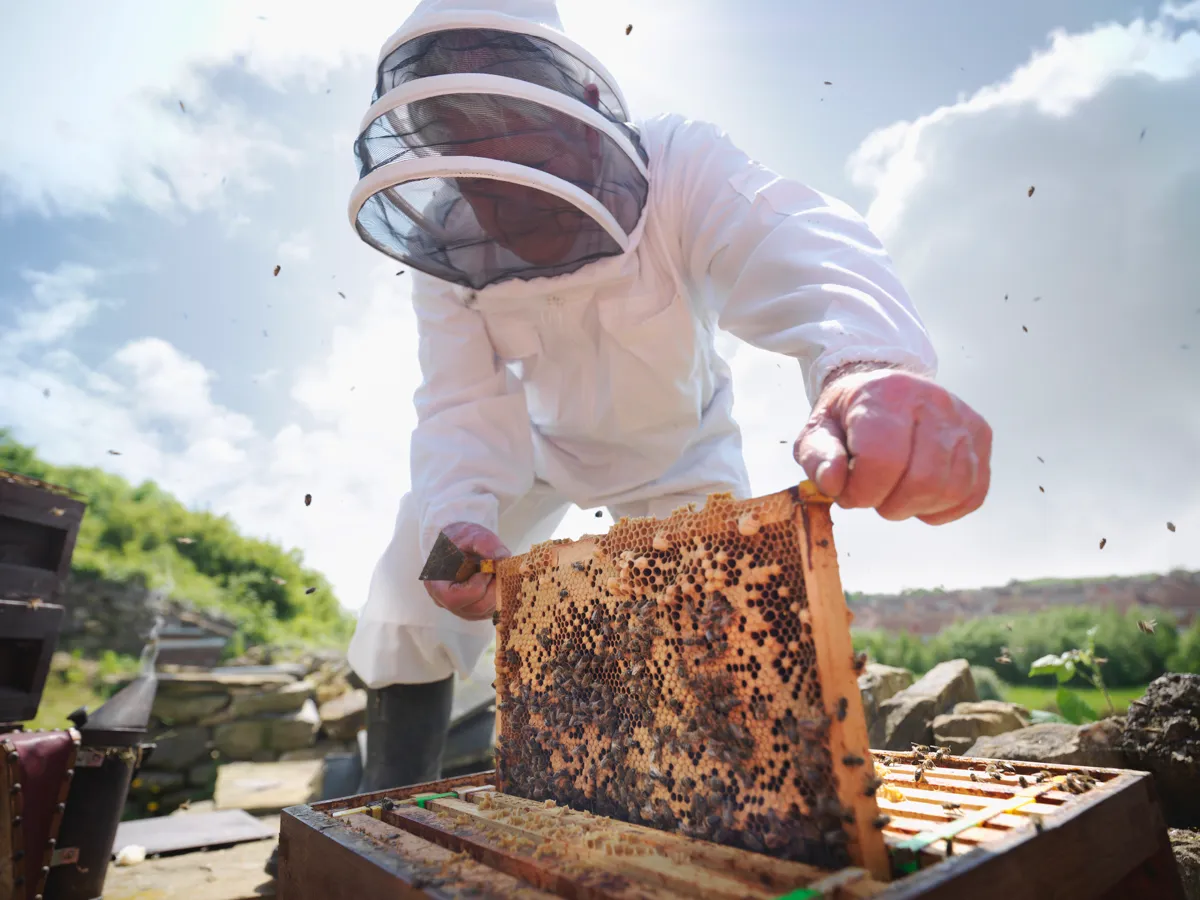We all know that we need to save the bees. There are many reasons for why their numbers are in decline, from climate change-induced temperature rises killing bumblebee colonies around the world, to pesticides contaminating their food and causing baby bees' brains to develop abnormally.
But another big threat to our favourite fuzzy insects is a parasite called the Varroa mite. These tiny mites need bees to live: they feed on larvae inside the hive and can reproduce over time to bring down a whole colony.
The Varroa mites also carry a number of viruses that don't harm the mites themselves, but when transmitted to bees they can cause infections that lead to wing deformities, paralysis, the loss of the co-ordination that keeps the hive going, and eventually death en-masse.
Read more about bees and insects:
- Bee scaffolding and bio heaters: New research reveals hidden beehive behaviours
- Your garden is a lifeline for struggling urban bees
One virus carried by the Varroa mite into honeybee hives is the deformed wing virus. It causes bees' wings to crumple or be stunted in their growth, but it can also affect a bee's memory. In worker bees, who are the ones responsible for finding food, this impairment to its ability to learn new routes home often means they leave the hive and never return.
If left untreated, the lack of food and workers could cause the colony to collapse.
“Pathogens are definitely a stressor for bees,” says Cheng-Kang Tang, a post-doctoral entomologist and first author on new research into the deformed wing virus. “But the beekeepers don’t want to use pesticides because of food safety concerns. So, we set out to find some compounds that can increase the strength of bees.”
The new research revealed a plant-based compound, sodium butyrate, could be given to bees on a regular basis to strengthen the hive against an attack by the deformed wing virus.
"This compound could be like taking a vitamin for humans," Tang told BBC Science Focus magazine. "It could make the honeybees stronger if they were given it regularly."
Found in a number of foods, sodium butyrate is a chemical compound made up of sodium, carbon, hydrogen and oxygen. The researchers called it NaB, and say it's even found in the human gut when we eat dairy products and fibre.
In the bees, NaB is able to increase the activity of the genes that the virus targets – particularly in the brain, where the virus disrupts the areas that control learning and memory.

When treating the bees with NaB proactively, before they caught the deformed wing virus, the researchers were able to save more than 90 per cent of colony over a five day period. In bees who were not given NaB before they caught the virus, just 10 per cent survived in the same amount of time.
“We also found previously that NaB can upregulate some immune response genes in bees," said lead author on the new study, Professor Yueh-Lung Wu. "This can help suppress viral replication and improve bees’ chances at survival.”
“Sodium butyrate is really cheap. So, if we can prove its benefits, it would be an easy and affordable approach for beekeepers to keep their bees alive,” said Wu. “Honeybees are important pollinators of myriad fruits and vegetables with economic importance worldwide and therefore are crucial for maintaining the balance of the ecosystem.”
Feeding bees with NaB could significantly increase their survival, even if they don't become infected with the deformed wing virus, the team wrote in their paper.
Tang also said that the researchers noticed the colony that had been receiving the NaB treatment made more honey compared to the infected hive. "So, we could follow up with a new project looking at the effects [of NaB] on agriculture and honey production."
